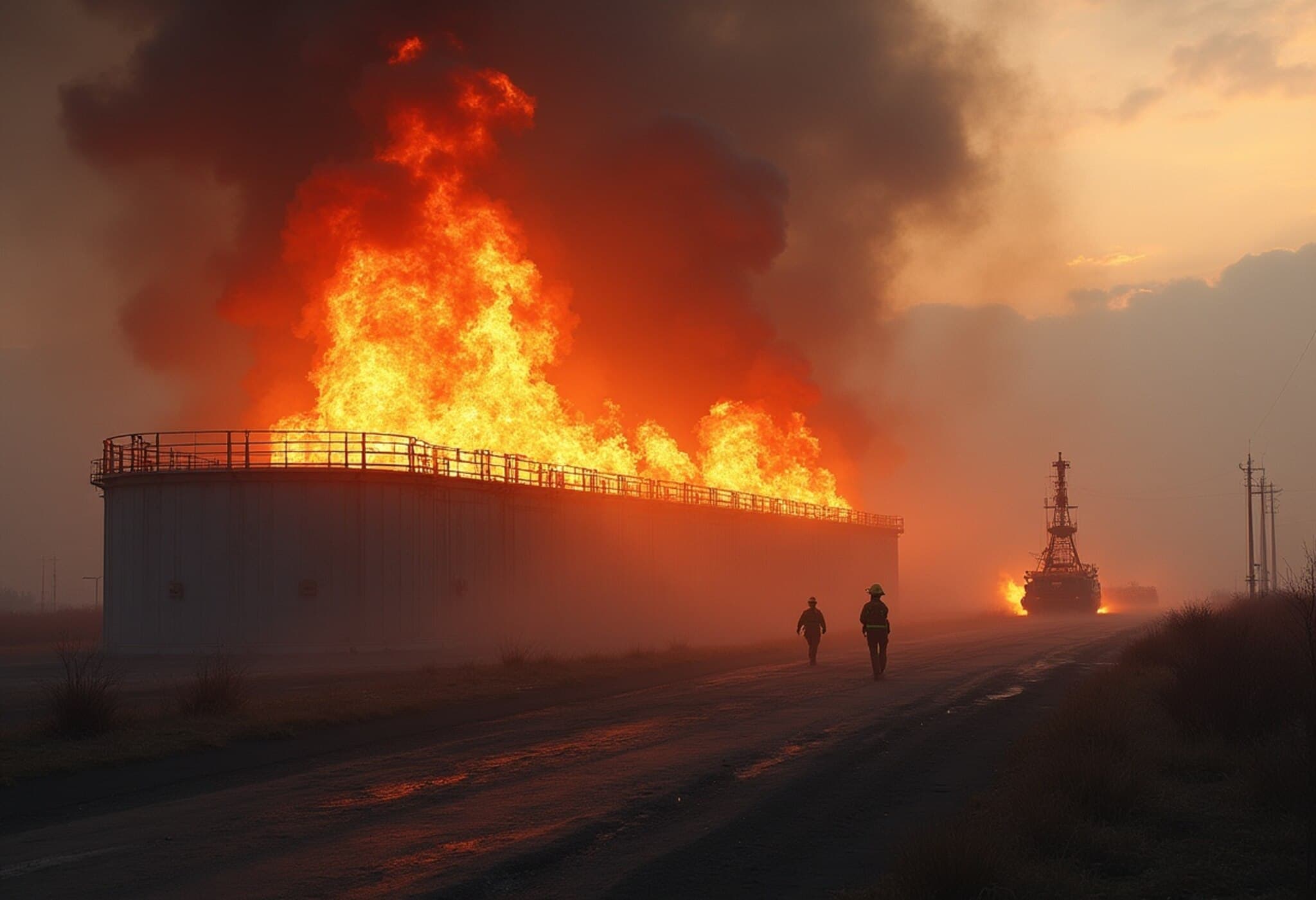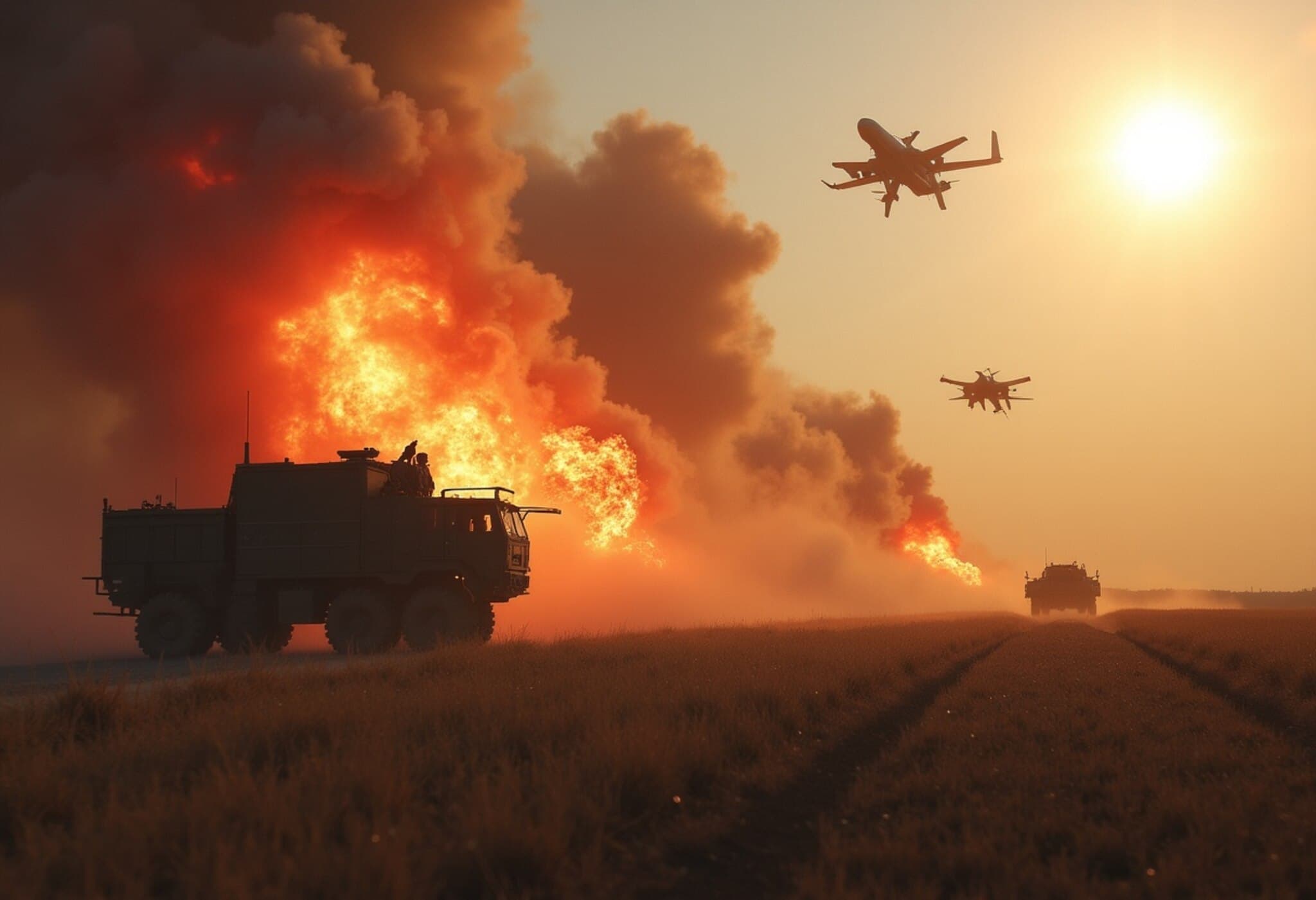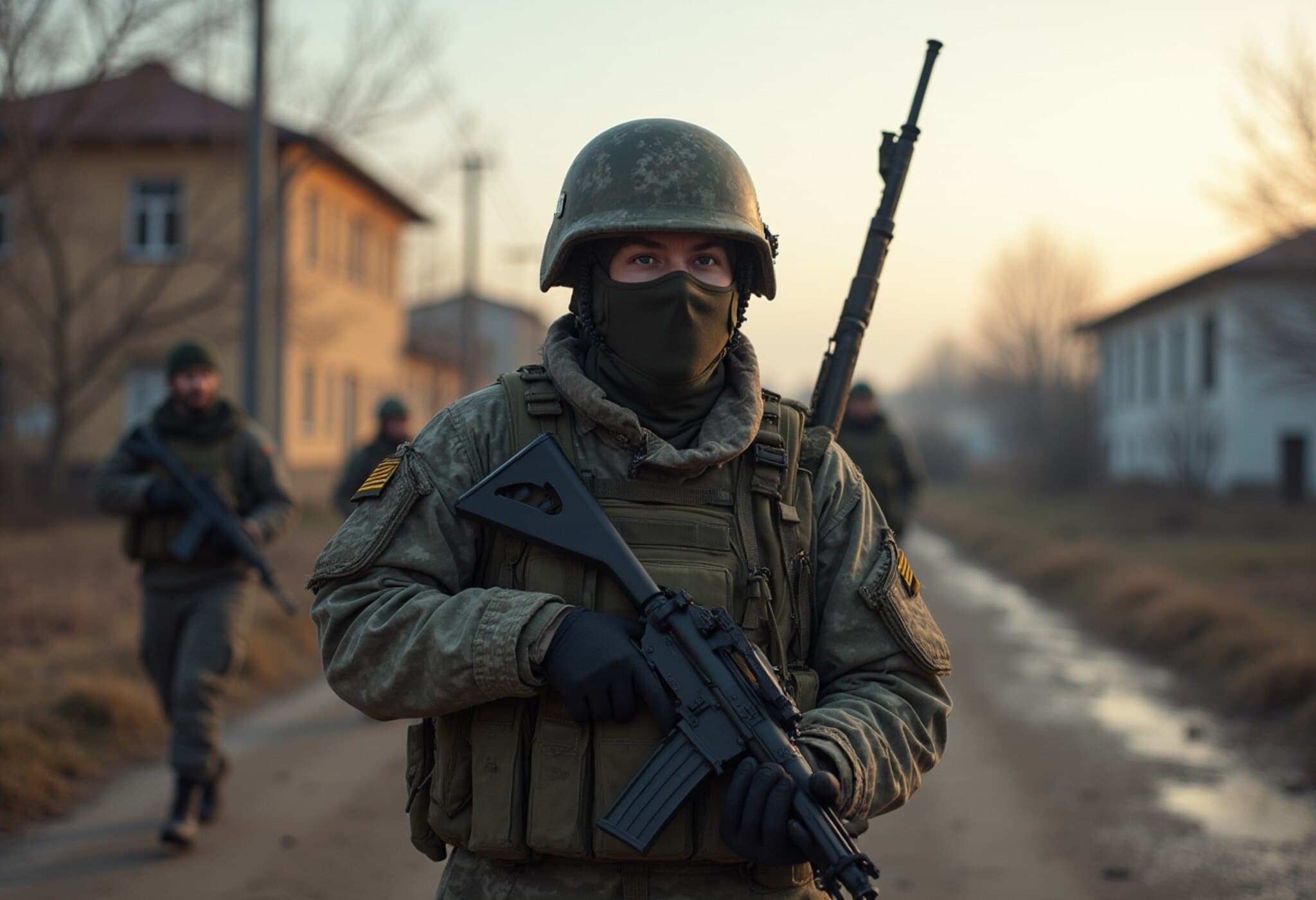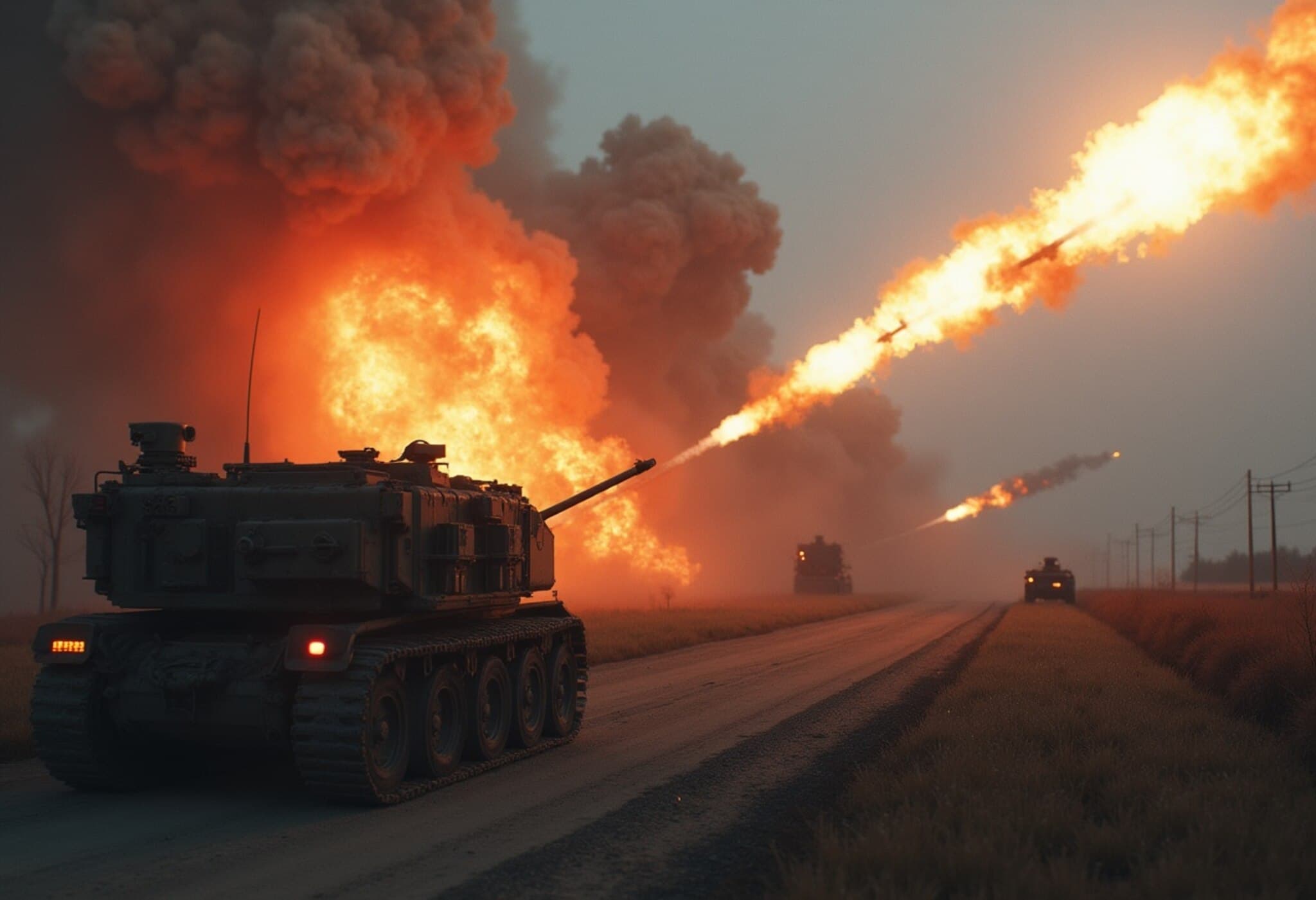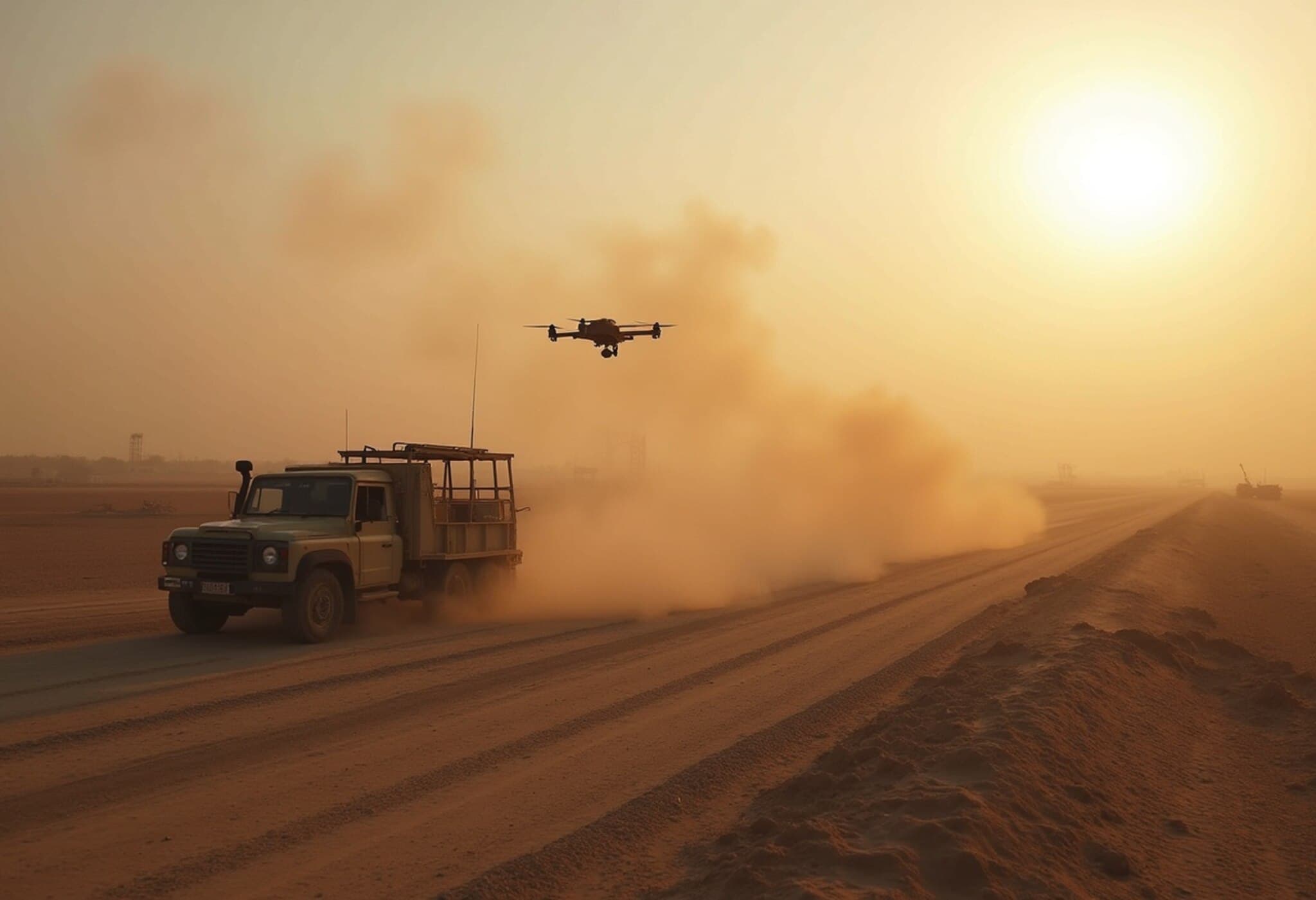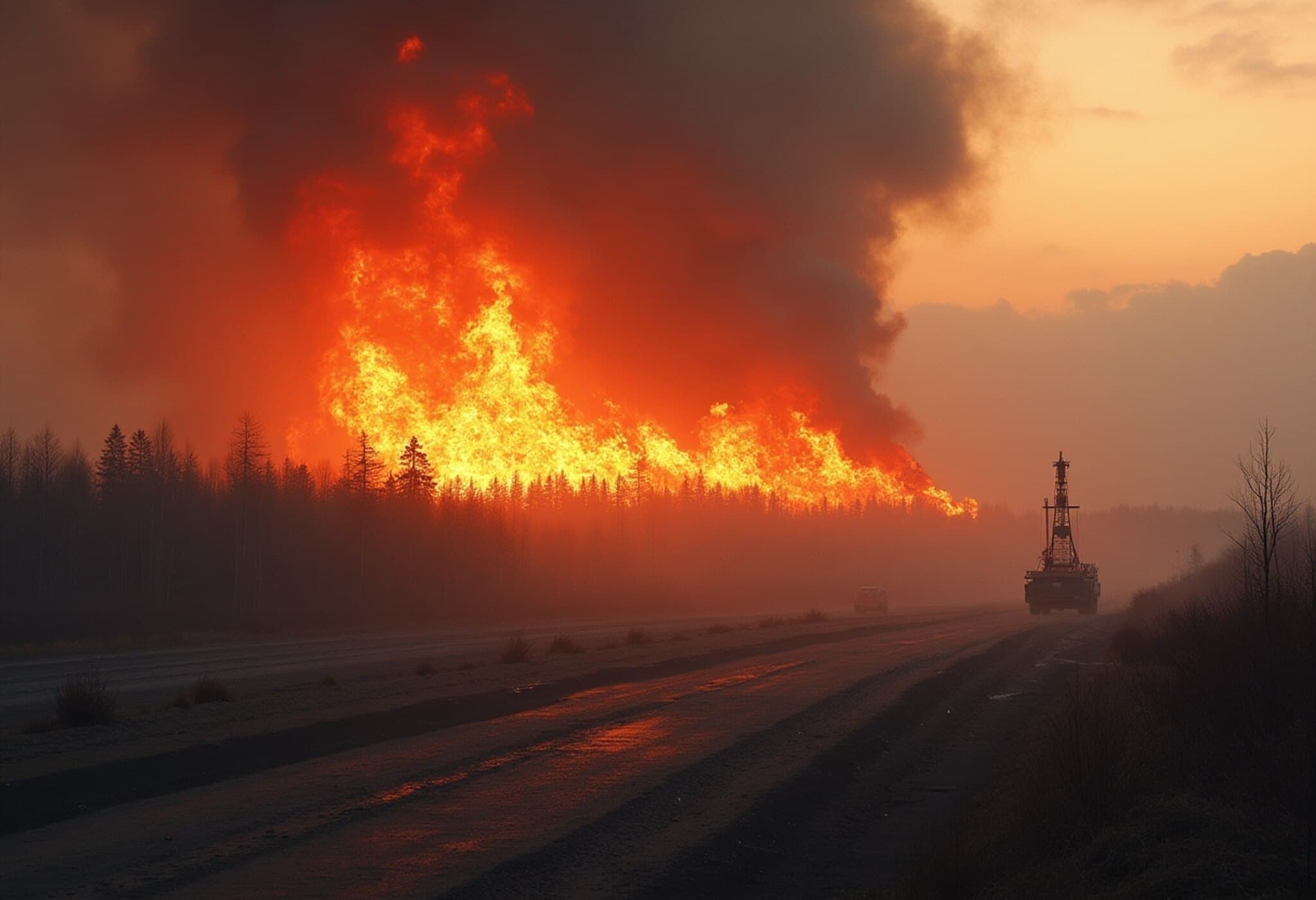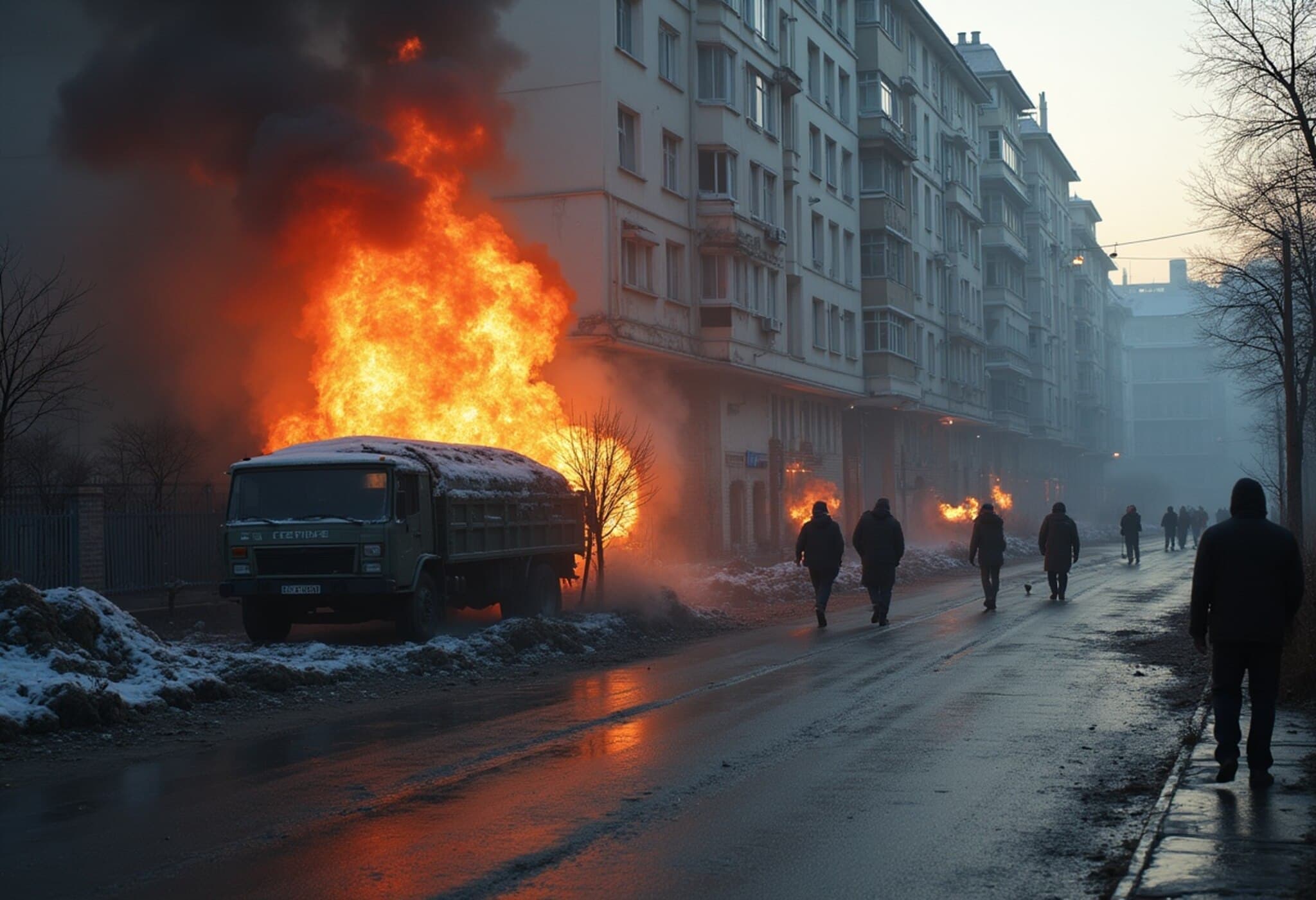Ukrainian Drone Attack Ignites Fire at Sochi Oil Depot
In a dramatic escalation of cross-border hostilities, a Ukrainian drone strike set ablaze a massive fuel tank at an oil depot in Sochi, Russia, according to regional Governor Veniamin Kondratyev. The incident unfolded early Sunday in the Adler district, a key coastal area renowned for hosting the 2014 Winter Olympic Games.
Firefighting Efforts and Immediate Impact
The blaze consumed a fuel tank with a capacity of 2,000 cubic meters (approximately 70,000 cubic feet). Over 120 firefighters mobilized to contain the fire amidst dangerous conditions. Russia's civil aviation authority, Rosaviatsia, temporarily halted flights at Sochi International Airport to ensure safety but later resumed operations around 2:00 GMT.
Russian Defense Ministry's Air Defense Response
According to a morning Telegram briefing from Russia’s Defense Ministry, air defense units intercepted and destroyed a staggering 93 Ukrainian drones overnight. Among these, one was downed over the Krasnodar region, where Sochi is located, while another 60 were shot down over the Black Sea. However, the ministry did not disclose how many drones Ukraine initially deployed, leaving the scale of the offensive difficult to assess.
Strategic and Regional Context
Sochi’s attack marks one of the few direct strikes on Russia’s strategic infrastructure along the Black Sea—a vital region not only for tourism but also for military and energy logistics. The Krasnodar region also hosts the Ilsky refinery, a critical oil processing facility frequently targeted in Ukrainian drone raids as part of Kyiv’s broader effort to disrupt Russia’s energy supply chains.
Escalations Beyond Sochi
On the same day, drone strikes hit the Voronezh region in southern Russia, resulting in at least four injuries and triggering multiple fires. The Russian Defense Ministry reported shooting down 18 drones over Voronezh, a region geographically closer to the Ukrainian border. Concurrently, Russia launched missile attacks on Kyiv, underscoring the ongoing tit-for-tat nature of the conflict.
Human Cost and Broader Implications
Though Ukraine officially did not comment, the attack highlights an increasingly bold Ukrainian strategy to target infrastructure that supports Russia’s prolonged military campaign. The previous drone strikes in Adler in late July had already resulted in civilian casualties, including the reported death of a woman—an alarming reminder of the toll these hostilities take on civilians caught in conflict zones.
Underreported Narratives and Critical Questions
- Civilian Vulnerability: How prepared are resort cities like Sochi, historically perceived as safe havens, to cope with the spillover of military conflict?
- Energy Security: What does repeated targeting of oil refineries and fuel depots imply for Russia’s energy exports and the wider global market?
- Air Defense Efficacy: While Russia reports high drone kill counts, the successful strikes invite questions about the effectiveness of current defensive strategies.
Expert Commentary
Military analysts suggest this attack represents the evolution of drone warfare in modern conflict zones — shifting from mere reconnaissance to potent offensive tools capable of hitting high-value economic targets deep behind frontlines. The continued Ukrainian drone incursions into Russian territory signal Kyiv’s intent to stretch Russian defenses and sustain pressure amid a grinding war of attrition.
Conclusion
This latest development in Sochi not only underscores the increasing reach of drone technology in warfare but also highlights the conflict’s expanding geographic footprint. As energy facilities and civilian areas alike come under threat, questions about regional stability and security arrangements loom large.

